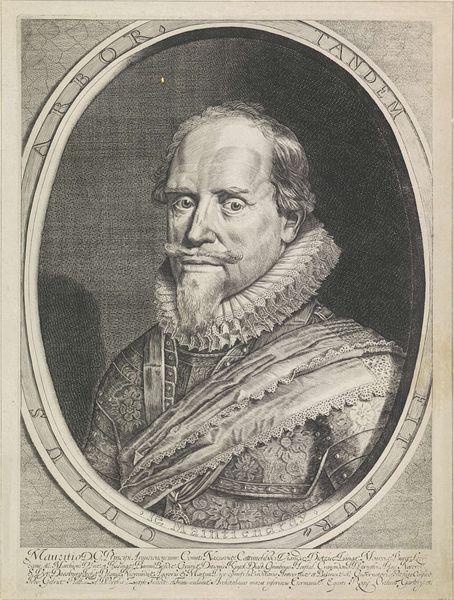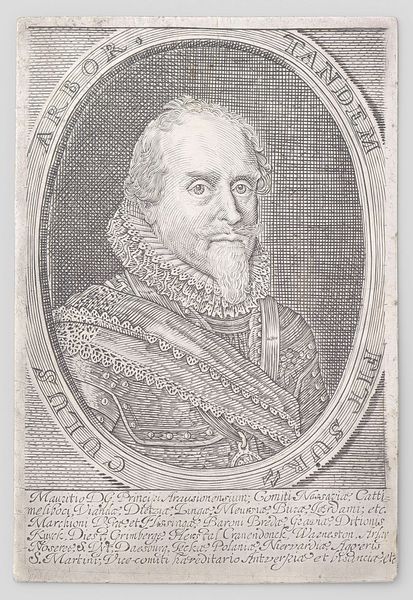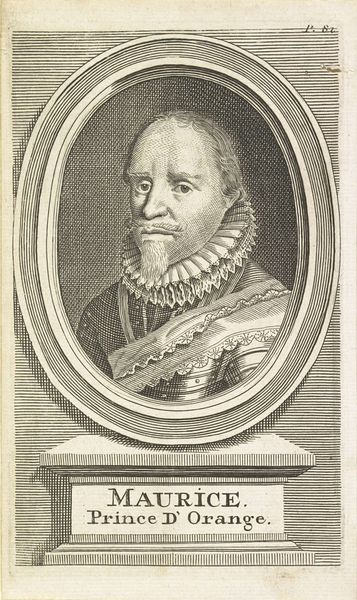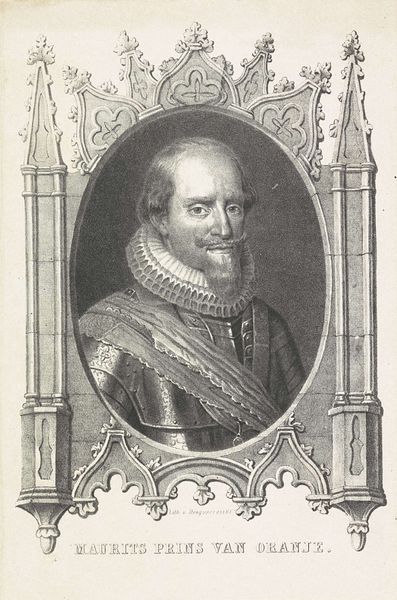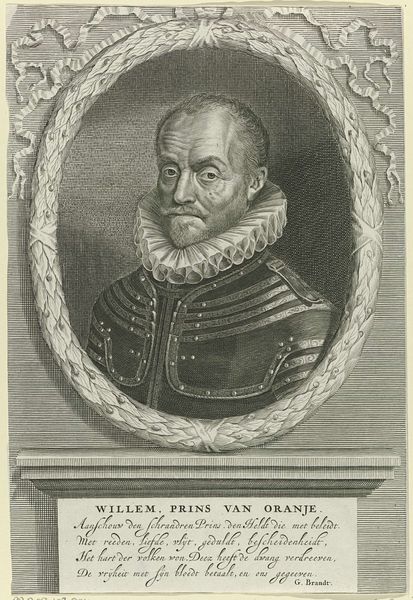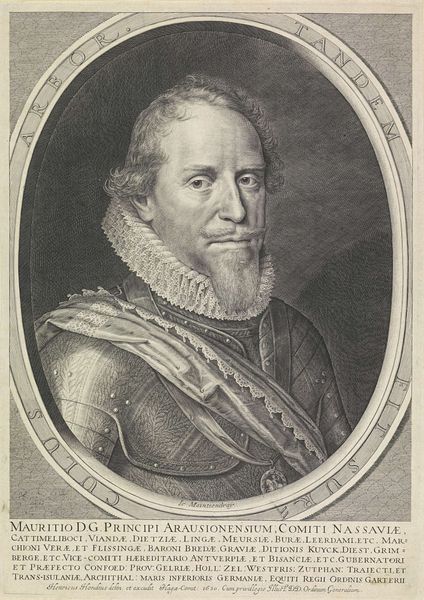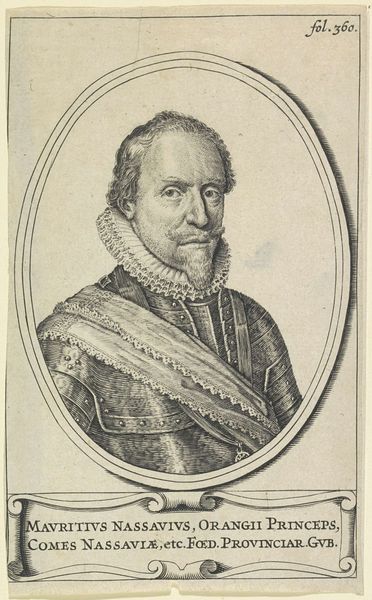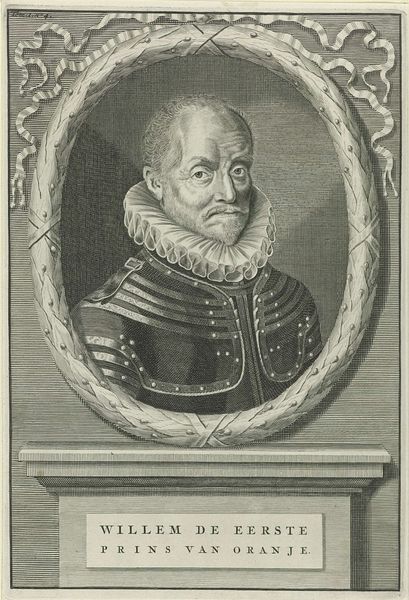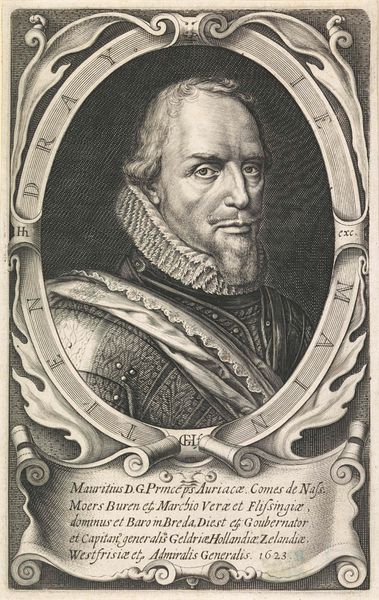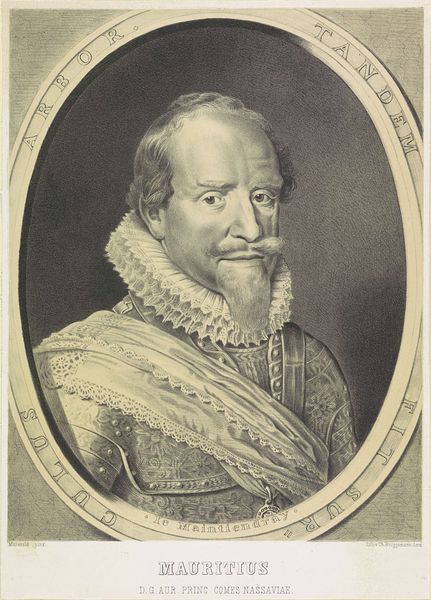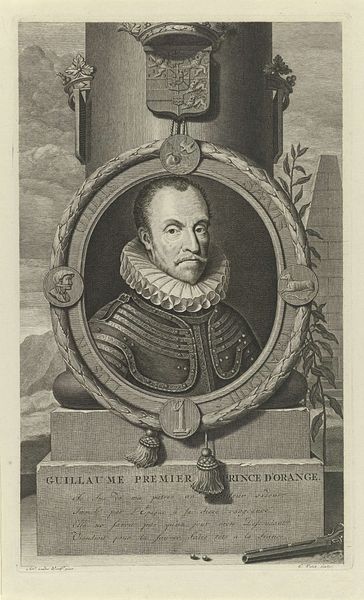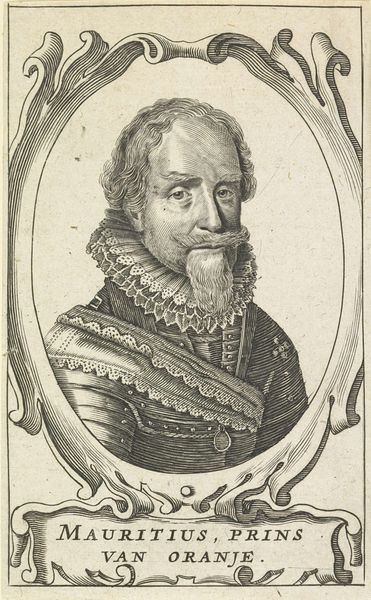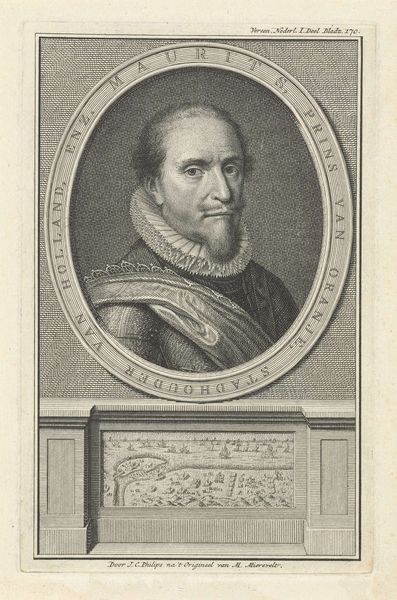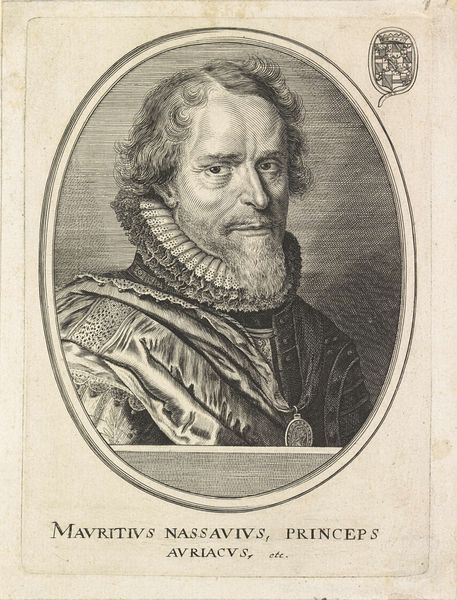
print, engraving
#
portrait
#
baroque
#
dutch-golden-age
# print
#
old engraving style
#
portrait drawing
#
history-painting
#
engraving
Dimensions: height 271 mm, width 185 mm
Copyright: Rijks Museum: Open Domain
This portrait of Maurits, Prince of Orange, was made anonymously, and it is an engraving. This technique involves cutting lines into a metal plate, applying ink, and then pressing paper onto the plate to transfer the image. The engraver clearly knew how to handle the burin, the tool that cuts the lines. Look closely, and you can see the subtle gradations of tone, achieved by varying the weight and density of the lines. This required a deep understanding of the material properties of both metal and paper, and the pressure needed to create a crisp impression. Consider the social context: engraving was a key technology for disseminating information in the early modern period. Prints like this one allowed the image of Prince Maurits to be circulated widely, reinforcing his power and authority. Though the print is small, the amount of labor to produce it was immense. This reflects the complex interplay between art, craft, and the machinery of state.
Comments
No comments
Be the first to comment and join the conversation on the ultimate creative platform.
